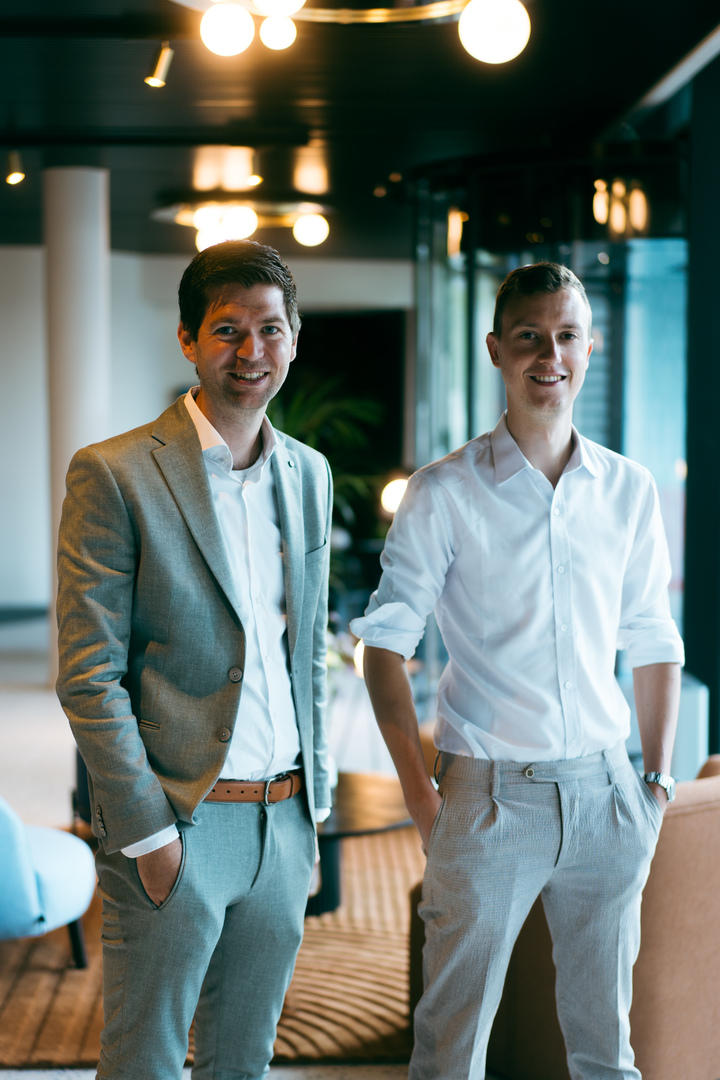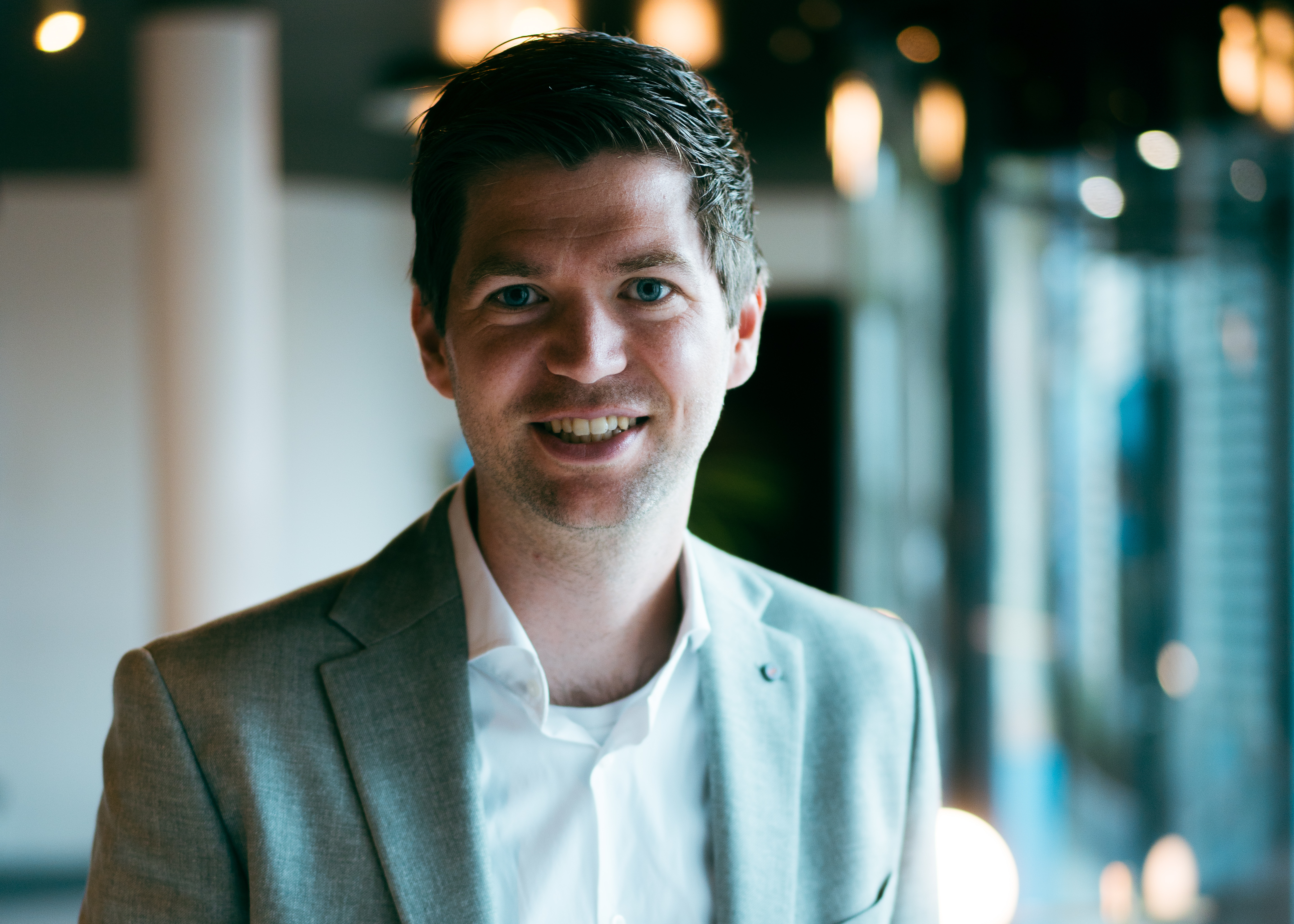Despite their fascination with new technologies, Jan and Nils are convinced that technology will ‘always’ play a supporting role. Digitalisation is the goal, technology is the tool, and man is the master of its application. “We focus mainly on supporting people and automating routine processes and tasks in order to relieve employees of repetitive actions. This frees up more time for developing creative solutions and focusing on the client. The choice of technology that you use for this is tied to the required performance, the long-term strategy, and the business objectives.”
Robotic Process Automation (RPA), for example, primarily automates processes at the ‘front end’. But increasingly, Jan’s team is digging a little deeper, down to system level. An example? “BDO Jersey is currently building a prototype of an HR assistant driven by artificial intelligence (AI),” Nils says. “Imagine the HR department of a company – with several hundred (or even thousands of) employees – receiving dozens of (often the same) questions from employees every day. Thanks to a custom-made algorithm, each question is automatically routed to the right data source and answered with a minimal margin for error.”


The question that keeps every business leader or entrepreneur awake is: “How do you make a ‘sensible’ choice today, when technology is evolving at such an incredibly rapid pace?” Jan: “Don’t be tempted or misled by a hype, but explore the possibilities and value of a new technology in small steps. Experiment before investing heavily! At BDO, we lead by example and present ourselves to our clients as a business case.” Walter Vanherle, BDO’s innovation guru, calls the interplay of strategy and actions the banana model (read the article ‘Living Tomorrow and BDO share the same innovation spirit’). “ChatGPT, to give a recent example, is a hype, but the underlying technology – the generative artificial intelligence – is extremely valuable and will lead to many tailored solutions. Just look at what happened with the cloud.”
How strongly you invest in technology obviously depends on the sector in which your company operates, what the competition is doing, and what advantage you can gain thanks to the added value that the technology brings to your business. Nils: “In any case, a company that wants to remain relevant in the future must achieve the minimum Olympic standard. If it does not, it weakens its competitive position and doesn’t play (or no longer plays) at the top. It’s a paradox: the more that companies invest in a specific technology, the smaller the lead you can take becomes, but the more urgent it becomes to follow.”
An absolute requirement for making meaningful use of technology is ensuring that you are (and remain) aware of the new evolutions. Which may seem obvious, but often it is not. “Raising awareness is part of our mission. Through various initiatives, such as Vision 2030, we are raising awareness among clients and prospects, as well as internally among colleagues,” says Jan. “In this way, we offer insights into what is already possible today and what the future will bring. At the same time, we explore the impact of the trends on the client’s business and develop potential scenarios for how the company can evolve.”
“Without losing sight of the employees,” emphasises Nils. “If people are not on-board with the story, they will disengage and the new technology will struggle to gain traction. Hence, the importance of combining technological innovation with a change management programme.” And with sound risk management. Every technology creates opportunities, but it also creates risks. “An algorithm can generate incorrect output because it relies on the biases or prejudices of the developer,” Jan says by way of an example. “Also consider this: when you share business-sensitive information via ChatGPT, that information becomes public and is therefore also available to competitors or cyber-criminals (FraudGPT). Fortunately, we can mitigate these risks with new solutions. In any event, dealing blindly with risks is out of the question, just as banning technology is.”

There is no doubt that technology drives the ability to innovate. Does it also affect our ability to think? “Have you heard of a ‘prompt engineer’?” says Nils, throwing the ball back. “A prompt engineer looks to discover what the most desirable input is in order to achieve a certain output. He uses generative AI to solve problems, just as a data engineer unlocks data for analysis. Until recently, it was primarily a matter of finding your way quickly through the mountain of information that a search query yielded. In other words, you had to be good at Googling. Today, the art is in asking ChatGPT the right questions so that you quickly get an accurate and truthful answer that’s to the point. This requires a new way of thinking combined with a critical attitude. The emerging generations of technologists have largely mastered that thinking process.”
Hence, the importance that BDO attaches to attracting these younger generations. “Through our culture of innovation and the way in which we explore new technological boundaries day-in day-out, we want to raise awareness among potential employees about opting for BDO.” Jan regularly organises a so-called ‘Techday’ during which his team examines and substantiates or debunks new technologies or applications. And also tests them out with colleagues from other fields (Legal, Finance, Tax, Risk, etc.) to detect the opportunities and pitfalls. Nils: “As an innovative player, you cannot ignore the technology hypes, because they open the door to a broader conversation. For example, it opens the eyes of a candidate who is applying as a data analyst to all the other options that are possible with that technology. And believe me: we are far from the end of our story.”
Do you need help in analysing your situation?
If so, get in touch with our technology experts at BDO Digital Advisory via the contacts at the top right.